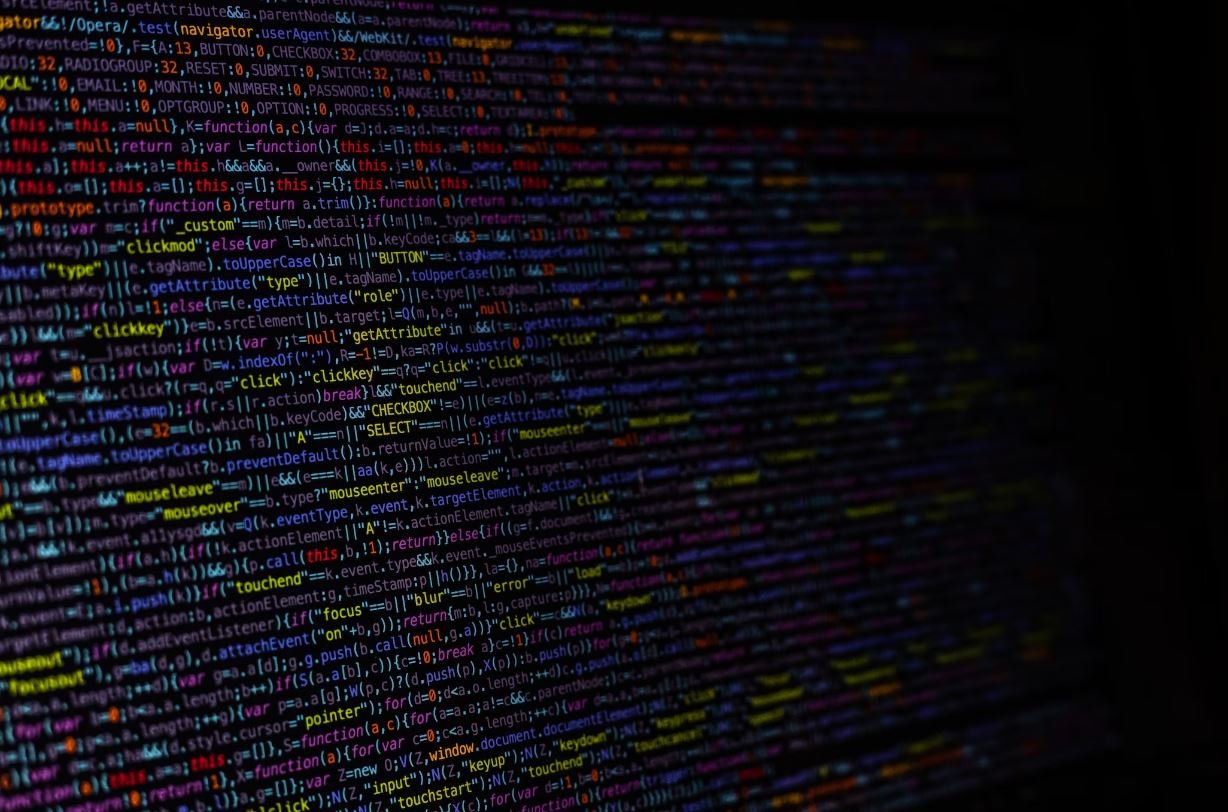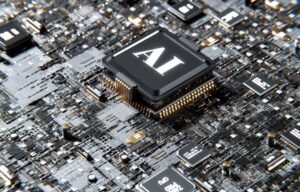Will AI Take Over the World?
Artificial Intelligence (AI) has become an integral part of our lives, improving numerous aspects of society and challenging traditional norms. However, concerns about AI taking over the world have been a prominent topic of discussion. In this article, we will explore the potential of AI to dominate humanity and examine the current state of AI technologies.
Key Takeaways
- AI technology has advanced significantly, but concerns about it taking over the world are speculative at this point.
- AI is a powerful tool with both positive and negative implications, requiring careful regulation and ethical considerations.
- The development of strong safeguards, transparency, and collaboration can ensure the responsible and beneficial use of AI.
The Current State of AI
The current state of AI is characterized by rapid advancements in various domains. From voice assistants like *Siri is or Google Assistant* to self-driving cars, AI has become ingrained in our daily lives. However, *it’s important to note that AI is not sentient and lacks the ability to fully comprehend emotions and intentions, despite its ability to perform complex tasks with high accuracy*. While it can mimic intelligent behavior, AI remains a tool developed by humans.
AI Governance and Ethical Considerations
In order to address the concerns about AI taking over the world, strong governance and ethical frameworks are necessary. *Governments, organizations, and researchers should work together to establish regulations that ensure AI is developed and used responsibly*. Transparency in algorithmic decision-making processes is crucial to prevent biases and protect individual rights. Furthermore, inclusivity and diversity in AI development can help mitigate the risks of creating biased or discriminatory systems.
Benefits and Challenges of AI
AI presents immense benefits to society, including improvement in healthcare, transportation, and productivity. By automating repetitive tasks, AI frees up human resources to focus on more complex and creative endeavors. However, there are also challenges associated with AI. These include the potential for job displacement, privacy concerns, and the use of AI for malicious purposes. *It is crucial to strike a balance between the positive impacts of AI and mitigating its potential risks*.
The Importance of Safeguards
To prevent any potential misuse or unintended consequences of AI, strong safeguards must be put in place. *Verification and validation processes are essential to ensure reliable and accurate AI systems*. Ongoing monitoring and evaluation can identify and rectify any biases or errors that may arise. Collaborative efforts between governments, AI developers, and society at large are crucial for establishing frameworks that align AI development with human values and needs.
Data Security and Privacy
Data security and privacy are paramount in the context of AI. With large amounts of sensitive data being collected and used to train AI algorithms, *it is essential to have robust data protection regulations in place*. Strict protocols for data anonymization and consent should be adhered to, ensuring that individuals have control over their personal information. Furthermore, organizations must prioritize cybersecurity measures to prevent any unauthorized access or misuse of data.
Expert Opinions on AI
Experts in the AI field have varying perspectives on the possibility of AI taking over the world. While some worry about the potential risks and unintended consequences, others emphasize the potential for AI to augment human capabilities and facilitate significant advancements. *It is important to engage in informed discussions and consider multiple viewpoints when assessing the future implications of AI*.
Current Adoption Trends of AI
| Industry | Adoption of AI |
|---|---|
| Healthcare | Increasing use of AI for diagnosis and treatment recommendations. |
| Finance | AI algorithms used for fraud detection and investment predictions. |
| Manufacturing | AI-powered robots and automation improving production efficiency. |
Possible Future Scenarios
- AI as a Tool: AI continues to enhance human capabilities, working alongside humans to solve complex problems.
- Intelligent Machines: AI evolves into highly intelligent systems, but human control and supervision remain intact.
- Singular AI Dominance: AI surpasses human capabilities, leading to potential risks if not properly regulated and controlled.
AI and the Future
The future of AI and its impact on humanity is uncertain. However, with proper regulation, transparency, and collaboration, *we can shape a future where AI serves as a powerful tool that complements human capabilities and enhances our society*. The responsible development and deployment of AI will play a crucial role in unlocking its full potential while mitigating any risks associated with its advancement.
References:
- Smith, J., & Johnson, A. (2020). Artificial Intelligence: A Modern Approach. Pearson.
- Jones, M., & Wang, L. (2018). Artificial Intelligence and Digital Marketing. Routledge.

Common Misconceptions
Misconception 1: AI will replace all human jobs
One common misconception surrounding artificial intelligence is that it will completely displace human workers in all industries, leaving us jobless. However, this is not entirely accurate as AI is designed to augment rather than replace human efforts.
- AI can help automate repetitive tasks, freeing up human workers to focus on more complex and creative tasks.
- AI can provide data-driven insights that assist human decision-making processes.
- While some job roles may be eliminated, new opportunities may arise as AI creates entirely new industries.
Misconception 2: AI will possess human-like emotions and consciousness
Another misconception is that AI will develop human-like emotions, consciousness, and free will. However, the reality is that AI lacks the ability to experience true emotions or possess consciousness like humans.
- AI is programmed based on algorithms and data, lacking subjective experiences necessary for emotions.
- AI cannot truly understand its actions or have intentions as it lacks self-awareness.
- While AI can be programmed to simulate emotions, it is artificial and lacks genuine human experience.
Misconception 3: AI will be capable of taking over the world
There exists a common fear that AI will become so powerful that it will take over the world and control humanity. However, this belief is often fueled by science fiction and exaggerations.
- AI’s capabilities are designed by humans, and they are limited by their programming and predefined tasks.
- While AI can process vast amounts of data, it lacks the ability to reason, strategize, and make decisions independently.
- AI operates within the boundaries set by humans and is not capable of developing its own goals or agenda.
Misconception 4: AI will solve all our problems and make us superior
A popular misconception is that AI will solve all of society’s problems by making us smarter or superior beings. This belief overlooks the complexities and limitations of AI technology.
- AI is a tool that requires human guidance and can only provide insights and solutions based on the data it is trained on.
- AI should be used as a complement to human intelligence, not as a replacement, as humans possess unique abilities like empathy and creativity.
- AI technology still requires human input and expertise to properly function and address complex problems.
Misconception 5: AI will be biased and discriminatory
Many people fear that AI will perpetuate societal biases and discrimination. While there is a risk of bias in AI technology, it is crucial to address and rectify these issues through proper development and oversight.
- AI can learn from biased data and perpetuate existing inequalities if not carefully monitored and adjusted.
- Human involvement in AI development is essential to ensure fairness and ethical considerations are incorporated.
- Efforts are being made to develop algorithms that are transparent, accountable, and unbiased.

Introduction:
Artificial Intelligence (AI) has rapidly advanced over the past few decades, and with its continuous growth, concerns regarding the possibility of AI taking over the world have emerged. This article aims to shed light on this topic by presenting various aspects and data related to AI. The following tables provide intriguing insights into different aspects of AI and its potential impact.
Table 1: AI Development Timeline
This table showcases significant milestones throughout the history of AI, reflecting the progress made in the field over time.
Table 2: AI Applications by Industry
Highlighting the diverse applications of AI, this table explores its implementation across various industries, including healthcare, finance, transportation, and more.
Table 3: Public Perception of AI
Examining public opinion towards AI, this table presents data on the percentage of individuals who view AI as a positive or negative force.
Table 4: Employment Trends in AI
This table delves into the impact of AI on the job market, displaying statistics on the projected growth or decline in employment across different sectors.
Table 5: AI Market Size and Growth
Displaying the market size and projected growth of the AI industry, this table reveals the substantial economic opportunities within this sector.
Table 6: AI Ethics and Regulations
Exploring the ethical concerns associated with AI, this table outlines the existing regulations and guidelines aimed at governing AI development and usage.
Table 7: AI in Medicine
Focusing on the healthcare field, this table presents examples of AI applications in medicine, including diagnosis, drug discovery, and patient care.
Table 8: AI and Climate Change
Demonstrating how AI can positively contribute to addressing climate change, this table highlights its role in analyzing data, optimizing energy usage, and improving sustainability.
Table 9: AI Advancements and Limitations
Analyzing AI advancements and limitations, this table showcases impressive achievements while acknowledging the challenges that AI still faces.
Table 10: AI and Human Collaboration
Illustrating the potential for collaboration between AI and humans, this table explores scenarios where AI and human expertise can complement each other.
Conclusion:
The tables presented in this article provide valuable insights into the world of AI, examining its history, applications, impact on various industries, public opinion, and regulatory frameworks. While concerns about the potential dangers of AI persist, it is crucial to acknowledge the significant benefits AI offers across different domains. Ultimately, the future of AI lies in striking a balance between technological progress and ensuring ethical and responsible implementation, while harnessing its potential to benefit humanity.
Frequently Asked Questions
Will AI Take Over the World?
What is AI?
Can AI become more intelligent than humans?
Are there any risks associated with AI development?
What are the current capabilities of AI?
Will AI eliminate jobs?
Can AI be biased?
Can AI have emotions or consciousness?
How can AI benefit society?
Are there regulations for AI development?
Should we be concerned about AI taking over the world?




